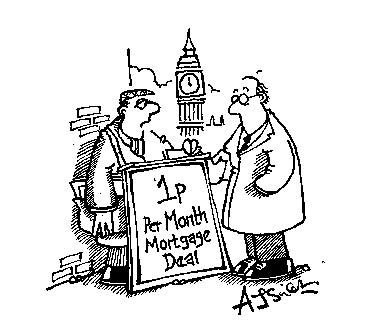To comprehend the scale of the sickening task awaiting George Osborne if he becomes chancellor, consider the following. If he were to raise VAT to 25 per cent, double corporation tax, close the Foreign Office, cancel all international aid, disband the army and the police, release all prisoners, close every school and abolish unemployment benefit he would still be unable to close the gulf between what the UK government spends and what it raises in taxes.
Hopes of a relatively rapid economic recovery that could conceivably fill this gap are receding every month. And there is a limit to how long the government can make up the difference with borrowed money and refer to its profligacy as a ‘stimulus’. Mervyn King, Governor of the Bank of England, has taken the extraordinary step of warning in public that another debt binge would be unworkable. The choices awaiting a new Tory government grow narrower and uglier each month.
This makes it all the more curious that the latest tax endorsed by the shadow chancellor is one which — unusually for a tax — would raise no revenue at all. The 45p tax for the rich proposed by Gordon Brown has but one purpose: to entrap the Tories. For five months they resisted the bait, refusing to endorse or reject the new tax. Then last week Mr Osborne declared that the tax would be ‘difficult to avoid’.
It is hard to see why. The 45p tax is scheduled for April 2011 so, to avoid it, Chancellor Osborne would only have to refrain from introducing it: simplicity itself. The Institute for Fiscal Studies says the tax would raise ‘approximately nothing’ simply because those targeted (people who earn more than £150,000) would hire better accountants, or emigrate. It is always the case with high rates of tax. So no plausible economic argument is being made for this tax. The balancing act being carried out by Osborne is political rather than fiscal.
All this has dismayed many Tories who regard this as the unnecessary adoption of yet another bad idea from a bankrupt government. Mr Osborne’s supporters urge patience: the struggle takes many forms, they say. Going along with the 45p tax now will give political cover for radical action that will be needed in office. Hence Mr Cameron’s change of tone, and his warning that the rich will need to pay a ‘fair share’ of the bill to come. A Tory government-in-waiting is now hinting that it is in the mood to hear some pips squeak.
Politically, this works. The public still want bankers’ blood, and consider their money a good second-best. But economically, this is highly dangerous territory. The Exchequer is exceptionally dependent on the rich: the top 1 per cent of earners contribute no less than 23 per cent of income tax. Financiers contribute a quarter of corporation tax receipts. Milking them is a delicate art: squeeze too hard, and they may bolt.
As the Mayor of London eloquently put it, we may not much like the Masters of the Universe at the moment but there are many other parts of the universe to which they can relocate. This week, for example, Barclays announced it is doubling its investment banking staff in Tokyo: news that should chill Mr Osborne as much as any dip in the opinion polls might. If London’s golden geese take flight, his options narrow further.
All of this puts the supposed row over inheritance tax into perspective. When Kenneth Clarke said it was not a priority, he spoke the truth — it is a measure that would be taken relatively late in the next Parliament. He and Mr Osborne agree that there is zero scope for giveaways at first. Where they do differ is on whether tax rises should be introduced early on. The former chancellor thinks a form of shock therapy would make for a speedier recovery, while the aspirant chancellor worries that such therapy might send the patient into renewed decline.
There is a third option, of course: to cut spending. In theory, Mr Osborne is committed to increasing overall government spending every year if elected — but I understand this pledge is unlikely to survive the drawing up of the manifesto. Insofar as Mr Osborne will discuss his plans at all, increasing spending is likely to be spoken of as an aspiration rather than a pledge. Real cuts are the grim but unavoidable remedy to a budget crisis caused by an explosion in government spending.
One Keynesian principle that the Tories would be advised to observe is his dictum that when the facts changed, he changed his mind. Every month, the size of the projected deficit grows larger. The latest estimate is that the government will have to borrow £180 billion to pay its bills in the coming financial year — more than the entire economic output of Ireland. Government spending is the last bubble left to burst.
In a speech in Birmingham a fortnight ago, Mr Cameron apologised for being part of a ‘cosy consensus’ on tax-and-spend and indicated he is ready to start again. Yet officially, both parties still propose increasing spending (albeit by a modest amount) regardless of the tax base, paying for it by almost doubling national debt to £1 trillion — while proposing an entirely tokenistic 45p tax for the rich. Rhetorically, Mr Cameron may have detached himself from Mr Brown, but economically the Tories still have him in a boxer’s clinch.
Once, it may have made political sense to minimise such differences with Labour. The decision to stick with the 45p tax proposal is an echo from this era. But when even the Bank of England is distancing itself from Mr Brown’s approach, it is time for Mr Osborne to stop taking his economic prescriptions seriously. It is now horrifyingly clear where they have led.







Comments